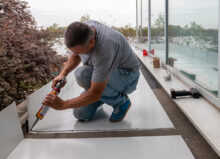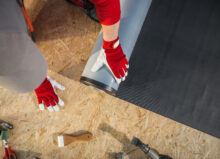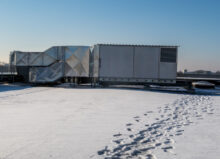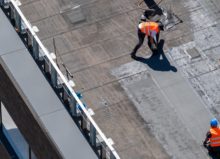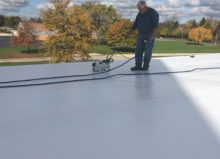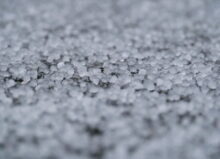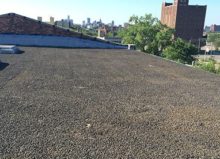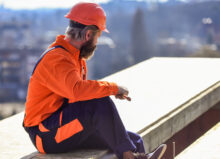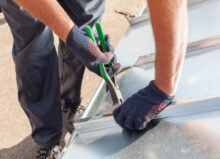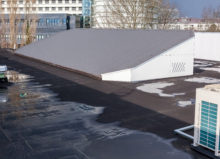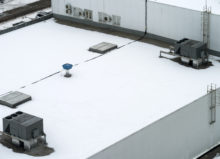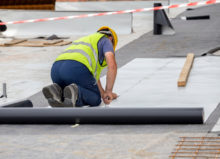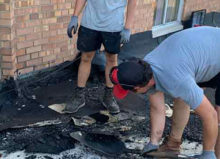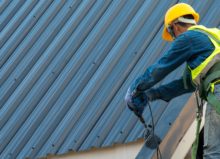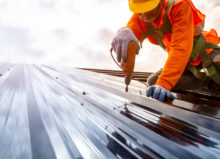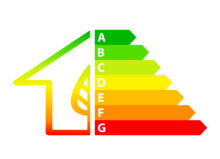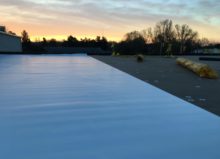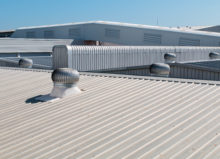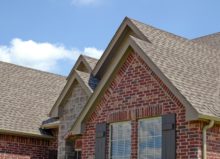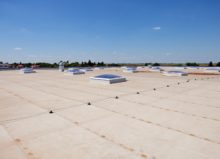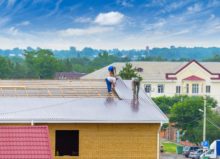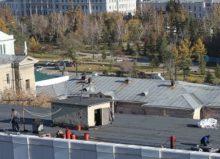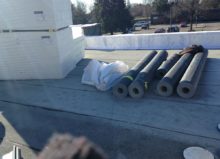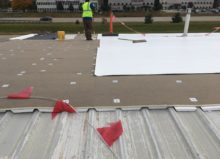10 Things to Know About Commercial Metal Roofs
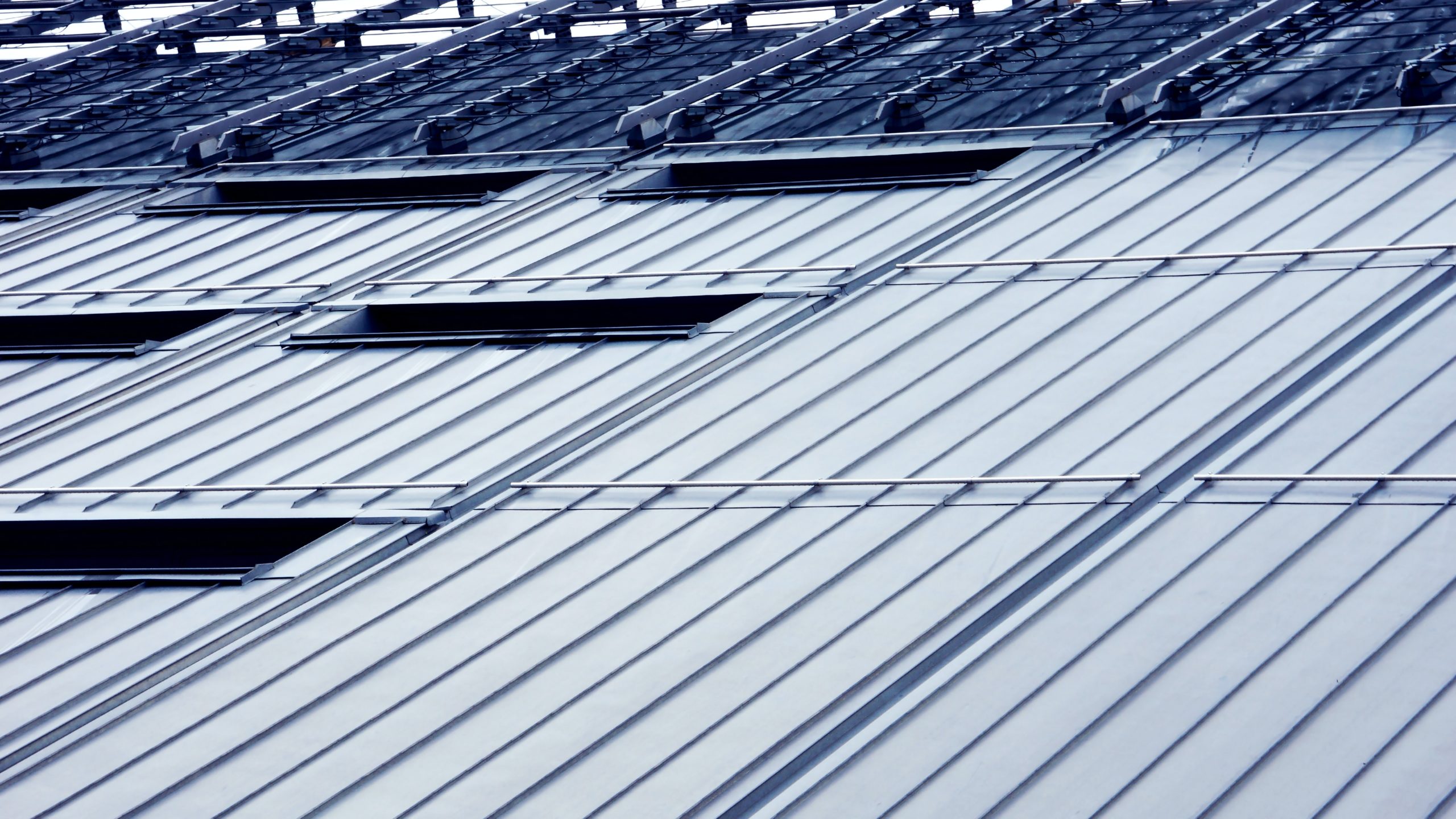
Gone are the days when asphalt was the go-to roofing material for flat and sloped roofs alike. Nowadays, metal roofing is one of the most popular commercial roof choices available. If you need to replace your commercial roof, here are the 10 things you should know about commercial metal roofing, and why you should choose Summit Commercial Roofing’s services for your next roof replacement project.
1. You Can Keep Old Roofing
Typically, a contractor will need to remove the old roof before installing a new one, but that is not the case with commercial metal roofing. If you have a shingle roof that needs to be replaced, you can almost always lay a metal roof over it. However, you want to find a company with experience installing metal roofs over old ones to ensure the old roof is vented correctly or risk moisture buildup and other problems.
2. Proper Installation Avoids Potential Noise Issues
A common misunderstanding with metal roofing is the assumption it is louder than other roofing materials. Sure, metal falling to the ground will sound noisier than asphalt. Still, when the material is correctly installed, it is adequately insulated to prevent any significant changes in noise volume, even in severe weather.
3. Metal Reduces Potential Risks of Lightning Strikes
People also incorrectly assume a metal roof will increase the likelihood of lightning strikes, but that is not true. The problem is the assumption metal automatically attracts lightning when lightning is an atmospheric occurrence primarily driven by geographic and topographic issues. A metal roof, if anything, provides greater protection, as it is non-combustible.
4. Metal Is Resilient to a Variety of Damages
Most other roofing options are susceptible to various damages, from mold to fire or insects to rodents. Metal is durable and resilient. It can hold up against hail, rain, wind, and likely an angry raccoon or persistent bees. With a properly installed metal roof, you can expect decades of durability and performance.
5. Metal Is a Good Choice for Nearly All Roof Types
Is your roof flat or sloped? While metal is not a good option for a truly flat roof, it is effective on all other commercial roofs, including those with only a minor slope. As long as there is enough slope to allow proper and efficient drainage and prevent pooling, a metal roof is an option.
What Types of Metal are Used for Commercial Metal Roofs?
The most common materials you’ll find used for commercial metal roofing are steel and aluminum. You’ll also see roofers use corrugated galvanized steel, stainless steel, and a blend of zinc, aluminum, and silicon-coated steel. If you’re unsure which material is best for your project, contact us.
6. A Metal Roof is More Attractive
Ridge vents and a growing collection of alternative designs make metal roofs an attractive option for the flat asphalt roofs of the past. Beyond being visually appealing, metal roofs provide a bold, memorable look for customers and clients while providing a sense of security and stability. When choosing a commercial metal roof, you’ll have access to a variety of different colors to match your architectural design.
7. You Can Improve Your Carbon Footprint
Many businesses are beginning to look into environmental options for operations. A metal roof is an excellent way to improve your company’s carbon footprint. The material, unlike other roofing materials, is recyclable. It is also essential to note metal roofs have a lifetime between 40 and 70 years, meaning less material waste.
8. Metal Roofs are Energy Efficient
Traditional asphalt roofs absorb and hold heat leading to increase utility costs throughout the year. Metal roofs, with their reflective surfaces, do not retain heat. Instead, these roofs reflect solar radiation away from the building, potentially saving up to 40% in energy costs per year.
9. It is a Cost-Effective Roofing Solution
Many business owners struggle to justify the initial costs of a metal roof installation. It is true that these roofing systems are more expensive initially, but you need to consider the predicted lifetime. 40 to 70 years is more than double other roofing options, which means — in the long run — you save money. To give additional context, composition shingles typically last 12-20 years, and asphalt shingles typically last 15-30 years.
10. Commercial Metal Roofing Requires Professional Installation
The need for venting and proper insulation for optimal effect requires experienced and knowledgeable contractors. We can ensure your commercial metal roof lasts, providing insight into future maintenance needs and offering support throughout the roof’s life.
Metal roofing is the perfect upgrade to your commercial facility. The benefits show these structures are superior to alternative materials. Despite the initial costs, a commercial metal roof offers efficiency, protection, and structural integrity for years to come.

